SPEAKERS
BB&T Speaker Series in Political Economy, Free Markets, and Free Societies
The Hobby School of Public Affairs invites you to attend the BB&T Speaker Series in Political Economy, Free Markets, and Free Societies. The BB&T Speaker Series convenes nationally renowned scholars and leading professionals to discuss timely policy and ethical issues. Lectures are free to the public. Lectures are co-sponsored by the Honors College's Phronesis program. Details about each individual lecture are below.
Fall 2012-Spring 2013 Speakers
True Believers
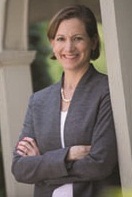
The horrifying genius of Soviet communism—as conceived in the 1920's, perfected in the 1930s and then spread by force to Soviet-occupied Europe—was the system’s ability to get the silent majority in so many countries to play along without much protest. A small proportion of people protested and a small proportion collaborated. But carefully targeted violence, propaganda, and the state’s monopoly on economic and civic institutions persuaded the rest to go along. These techniques were used to great effect in Eastern Europe after 1945; they were the central topic of this lecture on April 10, as well as of Iron Curtain, Anne Applebaum’s new book.
What's Fair? A Lecture Series on Justice and Desert in America
Free Market Fairness
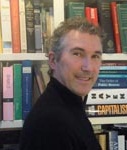
Dr. Tomasi's new book, Free Market Fairness, draws on moral insights from defenders of economic liberty such as F.A. Hayek and advocates of social justice such as John Rawls. In Free Market Fairness he develops a hybrid theory of liberal justice, one committed to both limited government and the material betterment of the poor. Free market fairness seeks to combine the uncombinables: capitalism and democracy, private property and social justice, free markets and fairness, the Tea Party and Occupy Wall Street. Free market fairness, he believes, is social justice, American style. On March 20, Dr. Tomasi discussed these and other issues.
Fairness of People and Procedures
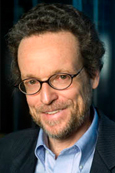
There is a deep tension between two fundamental elements of common morality: between our commitment to impartiality and the equality of all human beings, on the one hand, and our loyalty to our family, friendships, religion, and associations, on the other. On February 22, Thomas Pogge of Yale University discussed two ways of resolving this tension.
Strings Attached: Untangling the Ethics of Incentives

Incentives can be found everywhere—in businesses, schools, factories and government—influencing people's choices about almost everything, from financial decisions to exercise. So long as people have a choice, incentives seem innocuous. But when incentives are viewed as a kind of power, many ethical questions arise: Can incentive be manipulative or exploitative, even if people are free to refuse them? How do incentives affect character and institutional culture? What are the responsibilities of the powerful in using incentives? On November 30, Professor Ruth Grant of Duke University tackled these kinds of questions in a lecture based on her new book, Strings Attached: Untangling the Ethics of Incentives.
Two Levels of Desert

Claims about desert are made at two levels: an individual level, where we talk about what an individual deserves given what he on his own has done, and a societal level, where we look for a pattern where what people have is proportioned to their deserts, so those deserve more have more and those who deserve less have less. Claims at these two levels often support the same conclusion but sometimes conflict. On October 25, Dr. Tom Hurka discussed the relationship between the two types of desert claim, with specific reference to the moral desert, criminal desert, and economic desert.
The Ajax Dilemma: Justice, Fairness, and Rewards
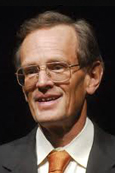
On October 4, in a lecture based on his new book The Ajax Dilemma, Professor Paul Woodruff of UT Austin examined one of today's most pressing moral issues: how to distribute rewards and public recognition without damaging the social fabric. Dr. Woodruff's visit was part of the BB&T Speaker Series in Political Economy, Free Markets, and Free Societies.
Economic Crisis: Causes, Consequences, and Remedies
The Clash of Economic Ideas

The Clash of Economic Ideas interweaves the economic history of the last hundred years with the history of economic doctrines to understand how contrasting economic ideas have originated and developed over time to take their present forms. On February 25, Professor Lawrence White of George Mason University traced the connections running from historical events to debates among economists, and from the ideas of academic writers to major experiments in economic policy.
Five Myths About America's Future Economic Decline
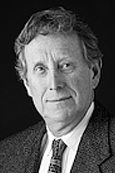
As we complete our fourth year of high unemployment & below-average production, many people think our future is very clouded. On Sept. 13, Georgetown University professor Dr. Stephen Rose argued that our economic strengths are many and that our future is bright. View Dr. Rose's presentation "Five Myths About America’s Future Economic Decline".
The Long Term Consequences of the Financial Crisis
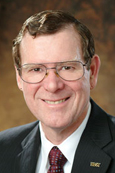
The American economy continues to suffer from the bursting of the housing bubble and subsequent collapse in the capital markets in the spring of 2007. On April 4, John Allison, retired CEO of Branch, Banking, & Trust (BB&T) discussed the causes of this crisis, including government policies and errors by financial institutions, and potential short and long-term solutions. View Mr. Allison's presentation "The Long Term Consequences of the Financial Crisis". Read the press release about the BB&T gift to the Hobby School of Public Affairs.